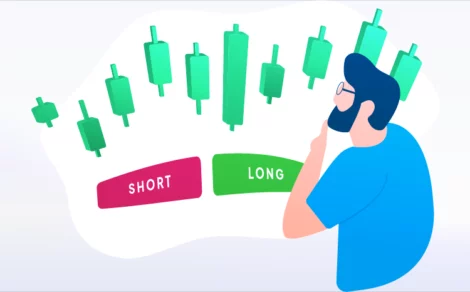An example of government security is a government bond, such as a 10-year bond, where you invest your money and earn regular interest payments. When the bond matures, you get back your original investment amount.
Toruscope » Online Trading » Types of Government Securities You Can Invest In
Investors often look for safe and stable options during uncertain economic times. Government securities offer exactly that. These are investments issued by the government to raise funds. In return, you get regular interest and your money back after a set time. Since they’re backed by the government, they’re considered very low-risk.
In this article, we’ll explain what government securities are, how they work, the types of government securities, and why they’re a smart choice for many investors.
What Is Government Security?
Government security is like a loan you give to the government. In return, the government promises to pay you back after a certain period with some extra money called interest. These securities are used by the Central or State Governments to borrow money from the public. They are considered very safe because the government rarely misses on payments. When you buy government security, you’re helping the government fund things like infrastructure, education, or health services, and you earn regular returns in the process. It’s a low-risk investment that suits people who want stable and secure returns.
How Do Government Securities Work?
Government securities are debt instruments regulated by the Reserve Bank of India (RBI). The funds raised through the auction of these bonds are used to finance routine expenses, infrastructure development, and defence-related activities. When investors purchase these securities, they are effectively lending money to the government. In exchange, they receive regular interest payments and the principal amount at maturity. These securities are also tradable in the secondary market, so investors can sell them before maturity if they wish.
Types of Government Securities
There are different types of govt securities that investors can choose from, depending on how long they want to invest and the kind of returns they are looking for. Each type works differently, but they all serve the same basic purpose: lending money to the government in exchange for returns. Let’s look at the main ones:
-
Treasury Bills (T-Bills)
Treasury Bills are short-term government securities with maturity periods of 14 days, 91 days, 182 days, or 364 days. These do not pay any periodic treasury bill interest rates. Instead, they are issued at a discount, and you get the full value at maturity. The minimum investment amount in a T-Bill is ₹10,000, and any amount above this must be in multiples of ₹10,000. These are great for investors who want to park their money for a short time with minimal risk.
-
Cash Management Bills (CMBs)
CMBs are similar to T-Bills but are used by the government to meet very short-term funding needs. Their maturity is even shorter than 91 days. They are usually issued when the government faces temporary fund shortages. CMBs are also sold at a discount and repaid at face value, just like T-Bills. They’re not always available, but can be a good option when issued.
-
Dated Government Securities
These are long-term securities with a fixed or floating interest rate, also known as the coupon rate. Investors receive regular interest (usually twice a year), and the principal is returned at the end of the term. These are ideal for long-term investors looking for steady income.
-
Floating-Rate Bonds (FRBs)
Unlike fixed-rate bonds, floating-rate bonds have interest rates that change over time. The rate is usually linked to a benchmark, like the average yield of previous government bonds. This type of bond helps investors earn more when interest rates go up. It’s useful in a rising interest rate environment because your returns also increase.
-
Bonds with Call and Put Options
These bonds come with extra features that give flexibility to both the government and the investor.
- A call option means the government can repay the bond before the maturity date.
- A put option means the investor can choose to sell the bond back to the government early.
These options are helpful when interest rates or market conditions change, giving both parties more control.
-
Capital Indexed Bonds
These bonds are devised to protect investors from inflation. The principal amount is linked to an inflation index, so if inflation rises, the value of your investment also goes up. While the interest rate may be lower compared to other bonds, the inflation protection makes these a smart choice for long-term savings.
-
State Development Loans (SDLs)
State governments also issue bonds known as SDLs to collect funds for public welfare projects. They work like dated securities and offer slightly higher interest rates compared to Central Government securities, since state governments carry a bit more risk. However, they are still considered safe investments as the Reserve Bank of India regulates them.
Features of Government Securities
Government securities are a safe and stable investment option for investors and have various features. Let’s look at these features:
-
Safety
Government securities are widely considered one of the safest investment options because of government backing. There’s almost no risk of losing your money, which makes them ideal for investors looking to park their money or allocate a portion of their portfolio to risk-free assets.
-
Fixed or Variable Returns
Most government securities offer fixed interest (also called coupon rate), which means you get a stable income regularly, usually every six months. Some securities, like floating-rate bonds, have changing interest rates based on market conditions.
-
Different Maturity Periods
You can choose how long you want to invest. Some securities last for a few days (like T-Bills), while others go up to 40 years (like long-term bonds). This gives you the flexibility to match your investment with your financial goals.
-
Tradable on Markets
Government securities can be bought and sold before maturity on both primary and secondary markets. This means your money isn’t locked in, and you can exit early if needed.
-
Regular Interest Payments
If you invest in bonds with coupons, you’ll receive interest income regularly (usually twice a year). This is a reliable source of income, especially for retirees or those seeking stable cash flow.
What Are the Advantages of Investing in Government Securities?
Government securities offer many benefits, especially for people who want to invest safely. Here are some key advantages:
- Very Safe Investment: Since these securities are backed by the government, they are one of the safest ways to invest your money. There is almost no chance of not getting your money back.
- Helps Diversify Your Portfolio: If you already invest in shares or mutual funds, adding government securities can balance your risk. They are stable and can protect your money during market ups and downs.
- Open to Everyone: Earlier, only big investors could buy these securities. Now, even retail investors (regular people) can invest easily in this option.
- Good for Long-Term Planning: With different maturity periods, you can choose to invest for a few months or even many years. This helps in planning for future goals like your child’s education or your own retirement.
Conclusion
Government securities are one of the safest and most reliable investment options available today. Whether you’re looking for short-term returns or long-term income, there’s something for everyone. Backed by the government and regulated by the Reserve Bank of India, these investments offer regular returns, low risk, and easy access even for retail investors.
Looking to balance your portfolio with safer investments? Open a 3-in-1 account with Torus Digital and explore low-risk options like government securities.
Frequently Asked Questions (FAQs)
-
What is a common example of government security?
An example of government security is a government bond, such as a 10-year bond, where you invest your money and earn regular interest payments. When the bond matures, you get back your original investment amount.
-
What are the different categories of government securities?
There are different types of government securities, including Treasury Bills (T-Bills), Dated Government Securities, Cash Management Bills (CMBs), Floating Rate Bonds (FRBs), Capital Indexed Bonds, and State Development Loans (SDLs). Each type has unique features like different interest rates and maturity periods to suit various investor preferences.
-
Who is responsible for regulating government securities?
The Reserve Bank of India regulates and manages government securities. It oversees their issuance, trading, and settlement, ensuring that everything runs smoothly and transparently.
Frequently Asked Questions
There are different types of government securities, including Treasury Bills (T-Bills), Dated Government Securities, Cash Management Bills (CMBs), Floating Rate Bonds (FRBs), Capital Indexed Bonds, and State Development Loans (SDLs). Each type has unique features like different interest rates and maturity periods to suit various investor preferences.
The Reserve Bank of India regulates and manages government securities. It oversees their issuance, trading, and settlement, ensuring that everything runs smoothly and transparently.
Related Reads
What is Slippage in Trading? Meaning, Causes & Impact Explained
In trading, timing and precision often define success. However, even when a trader believes...
By: torus
- 7 mins
- 01.Jul.2025
- 4(1)
- 96
What is an Option Contract?
Imagine having the flexibility to buy or sell shares at a fixed price, no...
By: torus
- 7 mins
- 01.Jul.2025
- 0(0)
- 43
Types of Financial Instruments You Should Know Before Investing
Before investing funds in any market, it is essential to understand what financial instruments...
By: torus
- 7 mins
- 01.Jul.2025
- 0(0)
- 39
What are Contracts for Difference (CFD)?
Contracts for Difference, commonly known as CFDs, are financial instruments that allow traders to...
By: torus
- 9 mins
- 01.Jul.2025
- 0(0)
- 39
Difference between Short Position & Long Position
Understanding the concepts of short and long positions is essential for anyone interested in...
By: torus
- 8 mins
- 01.Jul.2025
- 0(0)
- 38
Essential Trading Terminologies You Need to Know
Trading in financial markets opens a world full of opportunities. For many first-time investors,...
By: torus
- 8 mins
- 01.Jul.2025
- 0(0)
- 47
Disclaimer: The content provided in this blog is for informational purposes only and does not constitute financial advice or recommendations. The content may be subject to change and revision. Readers are encouraged to conduct their own research and consult with a qualified financial advisor before making any investment decisions. Torus Digital and its affiliates takes no guarantees whatsoever as to its completeness, correctness or accuracy since these details may be acquired from third party and we will not be responsible for any direct or indirect losses or liabilities incurred from actions taken based on the information provided herein. For more details, please visit www.torusdigital.com.
Tenneco Clean Air IPO Listing: Strong Market Debut with 27% Premium
Tenneco Clean Air India Ltd made a confident entrance into the public markets on...
By: torus
- 5 mins
- 19.Nov.2025
-
3.7(6)
-
138
Stock to Buy Today: November 19, 2025
The Indian stock market witnessed a mild decline on November 18, 2025, ending a...
By: torus
- 4 mins
- 19.Nov.2025
-
4.3(3)
-
138
Mirae Asset Infrastructure Fund NFO: A Sector-Focused Bet on India’s Growth
Mirae Asset Mutual Fund has launched a new equity scheme — Mirae Asset Infrastructure...
By: torus
- 4 mins
- 18.Nov.2025
-
4.3(6)
-
138
Emmvee Photovoltaic IPO: Shares Make Muted Market Debut, List Flat At ₹217
Emmvee Photovoltaic Power made a muted debut on 18 November 2025, listing flat at...
By: torus
- 3 mins
- 18.Nov.2025
-
3.7(6)
-
138








